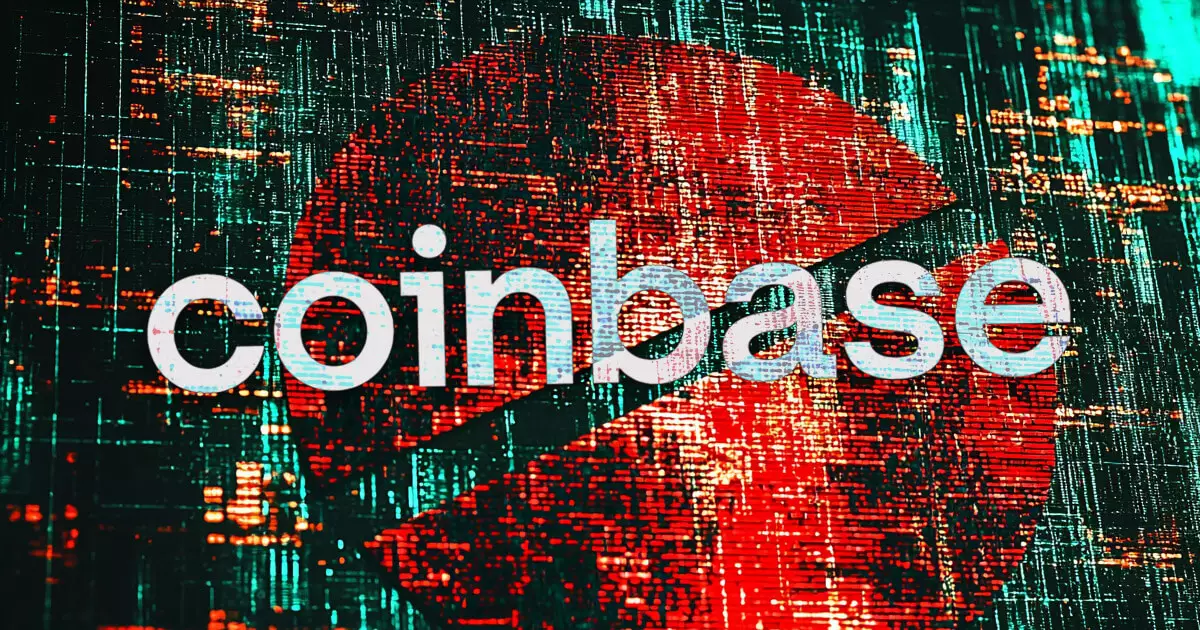In the fast-evolving sphere of cryptocurrency, platforms that facilitate trading and transactions often find themselves at the intersection of security and user privacy. A recent development has seen Coinbase, the largest cryptocurrency exchange in the United States, facing significant backlash from its user base due to its stance on the use of Virtual Private Networks (VPNs). Concerns arose when the platform’s product designer, Scott Shapiro, publicly advised users against employing VPNs to access their accounts, categorizing them as a potential threat. This declaration has ignited discussions on the fine line between security measures designed to protect users and an encroachment on their privacy.
The Issue of Trust and Risk Management
Coinbase’s risk assessment strategy identifies VPN usage as indicative of possible malicious activity. Shapiro elaborated that the platform’s algorithms are designed to flag such connections, associating them with fraudulent intentions. This assertion reflects a broader trend in platform security, where companies opt for stringent measures that sometimes inadvertently penalize legitimate users. In this case, the concern arises that the very tools individuals use to secure their online activities are being mischaracterized as dangerous. For many in the crypto community, VPNs represent a shield against cyber threats and a means to protect their financial privacy in an ever-watchful digital environment.
Recent surveys show a notable uptake in VPN usage in the United States, with almost half the adult population utilizing these services. This trend underscores a growing awareness and prioritization of online privacy among users. In light of this, Coinbase’s decision to restrict access might not only alienate a segment of its user base but also foster distrust. Users are beginning to perceive this policy as a step toward unwanted oversight rather than a commitment to safeguarding their interests.
Criticism from crypto advocates has been swift and vocal. Comparisons have been drawn between Coinbase’s VPN restrictions and broader issues concerning financial decentralization and individual rights. Many users consider the ability to use a VPN a fundamental aspect of online privacy, implicating that denying this access risks pushing users towards alternative platforms that are more accommodating. Notably, individuals see VPNs not merely as tools but as essential components in maintaining their autonomy in an increasingly monitored digital space.
Nick Percoco, Chief Security Officer at Kraken, has expressed similar sentiments, pointing out that the choice between privacy and financial accessibility is a false dichotomy. For many cryptocurrency holders, particularly in oppressive regimes, using a VPN is a necessity for accessing financial services without the risk of government retribution. Such a scenario raises an essential question regarding the ethos of crypto as a decentralized and liberating financial technology.
The juxtaposition of security protocols and user privacy introduces a complex dilemma. Security expert Sudo has termed Coinbase’s measures as “misguided,” emphasizing that VPNs serve as a protective barrier, especially in risky online environments like public networks. Furthermore, Sudo pointed out the inherent contradiction in Coinbase’s operational policies—having recently championed privacy tools while concurrently disparaging users who employ VPNs for legitimate security purposes.
However, not all voices in the community resonate with the criticism. Crypto expert Evan Van Ness views Coinbase’s preventive measures as normative within the industry, pinpointing that nefarious actors often misuse VPNs to cover their tracks. He acknowledges that fraudsters frequently exploit VPN services but asserts that most legitimate users likely understand and accept the need for flexibility concerning their VPNs when engaging with trading platforms. This perspective suggests a potential path forward, where Coinbase could establish guidelines allowing VPN use under certain conditions rather than a blanket prohibition.
The challenge facing Coinbase is emblematic of a broader conflict within the cryptocurrency ecosystem: the balance between security and user rights. As the situation continues to unfold, it is essential for platforms to adopt policies that respect user privacy while maintaining robust security measures. The outcry from the crypto community serves as a reminder that user trust is paramount, and enterprises must find more nuanced strategies to engage their clients without compromising on security. In this liquidity-driven landscape, navigating these challenges will define the success of exchanges like Coinbase in a future where user rights and financial freedom are increasingly at stake.


Leave a Reply